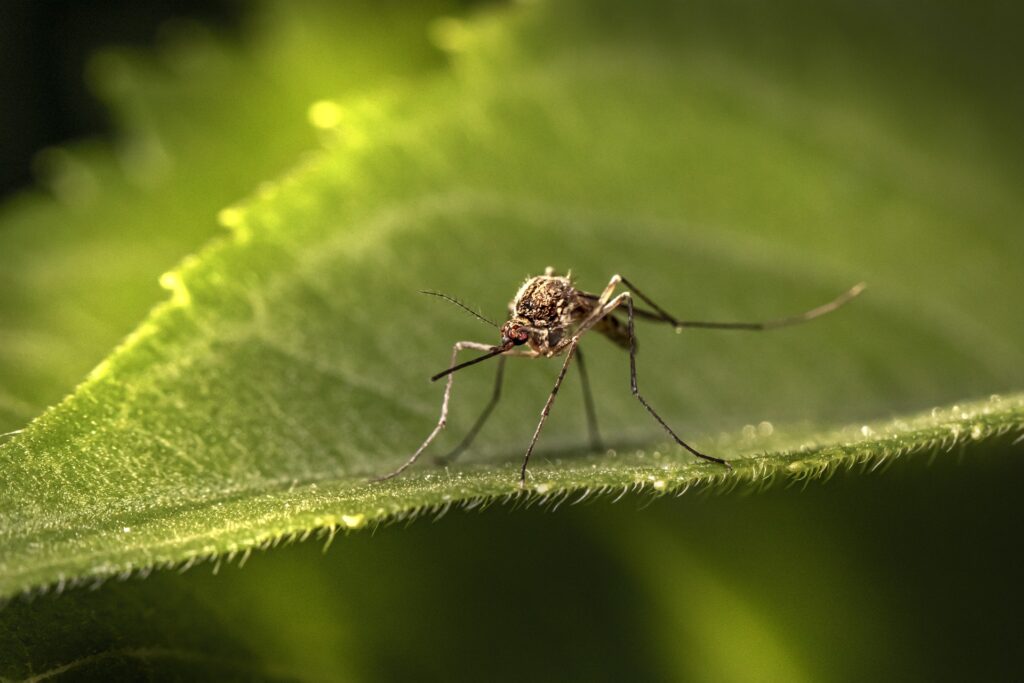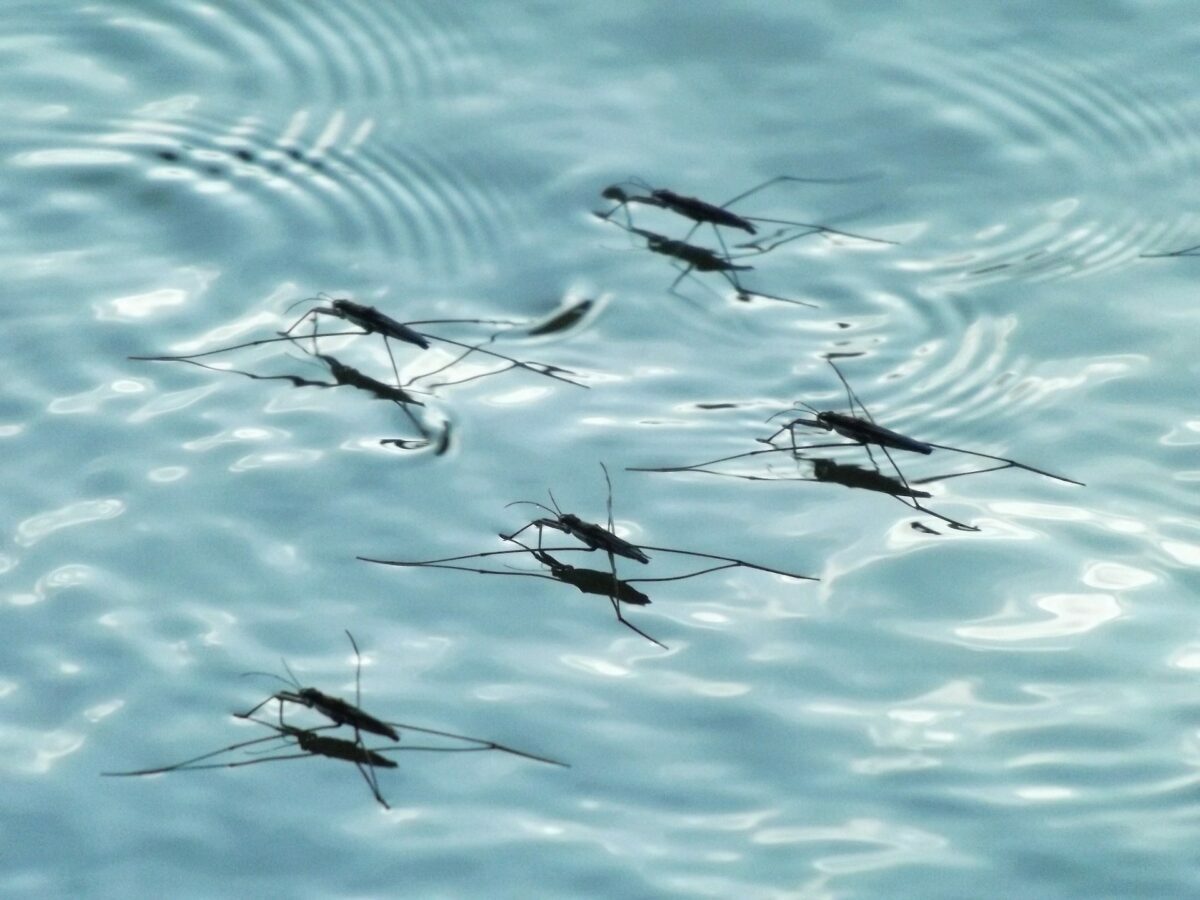Garden ponds are a fantastic way to increase both the beauty and the value of your home. There is one very real downside, however – mosquitoes.
These pests will be happy to make a home in a readily-available source of freshwater! Fortunately, there are some measures you can take to decrease (and even all but eliminate) mosquitoes in your pond – see below!
Do Garden Ponds Attract Mosquitoes?
The life cycle of a mosquito is entirely dependent on water. These bugs lay their eggs on the water’s surface, which hydrates them until they can hatch into larvae.
These little guys swim around in the water, and feed on algae, primarily. Eventually, they turn into pupae, which also dwell in the water. It isn’t until they’re fully mature that mosquitoes can finally take into the air!
Along with the freshwater, tall grasses and other plants growing alongside a pond are some of the mosquitoes’ favorite perches; this is where they will breed and take a blood-sucking break.
So, if you’re not into mosquitoes, you’ve got a couple of options 1) you can remove the pond or 2) you can take some measures to fend the mosquitoes off. Many have also had success with the latter!
Remove the Pond
- Rehome Plants and Wildlife
- Remove any Objects and/or Sediment
Fend Mosquitoes Off
If you’ve grown attached to your pond, you may instead wish to opt to fend the mosquitoes off. While they are stubborn pests, there are some sure-fire ways that you can eliminate them and scare them off.
Pond Wildlife (Frogs and Fish)
The most effective way to get rid of mosquitoes is with good, old-fashioned, mosquito-eating pond critters. This includes fish, such as goldfish, bluegills, catfish, guppies, and bass, as well as frogs (tadpoles especially), turtles, and more.
You can also encourage birds and other mosquito-eating critters to visit (such as dragonflies, which can eat a hundred mosquitoes a day) with eelgrass, baby pondweed, hornwort, and/or a bird feeder!
Insecticide (Wildlife-Friendly BTI)
Along with these other steps, you can also administer a wildlife-friendly insecticide to your pond.
While some insecticides are poisonous to wildlife, too, the best kinds are made up of Bacillus thuringiensis israelensis (BTI). This will kill many of the mosquitoes off, without putting any other wildlife at risk!
Mosquitofish (They Eat 100-500 Mosquitoes a Day)

If you’re not too keen on having many pond critters to care for, you can also opt for mosquitofish only. These are known mosquito-killers, each accounting for roughly 100-500 mosquitoes a day.
With a little school of these in your pond, the bulk of your mosquito problem (and their pupae and larvae) is sure to be consumed or scared off!
Just keep in mind, mosquitofish can be invasive in some areas, so do you your research, and make sure that they stay in your pond (and aren’t part of any runoff, etc.).
Also, mosquitofish require a pond environment with 6.5-8 pH, and roughly 80F!
Moving Water
For their safety and comfort, mosquitoes depend on stagnant or slow-moving water. Otherwise, they – and their eggs, larvae, and pupae – would be dragged away by the current.
They are much more comfortable in slow, easy-to-hatch-and-feed-in water!
So, what can you do to make your pond water less stagnant? Try a classic pond filter or aerator! You can also add some water-circulating pond features, such as a waterfall, water wall, or water bubbler!
Keep Any Algae Under Control
There are several methods to keep algae under control in your pond. One suggestion is to place Barley Straw on the pond surface. When this begins to break down it will naturally release peroxides that will break down the algae. You can purchase this product in mini bales or a liquid concentrate.
Another line of defense to naturally reduce algae in your pond would be to use some Baking Soda. Bicarbonate, the active ingredient in baking soda. Cleaning your sidewalls with a brush will help kill the algae and is an effective spot treatment.
Conclusion
Having an amazing pond in your garden is certainly a tranquil and relaxing feature, but keeping the water circulating and aerated will help to reduce your mosquito population.
So your family and friends can enjoy your backyard without getting bitten.
